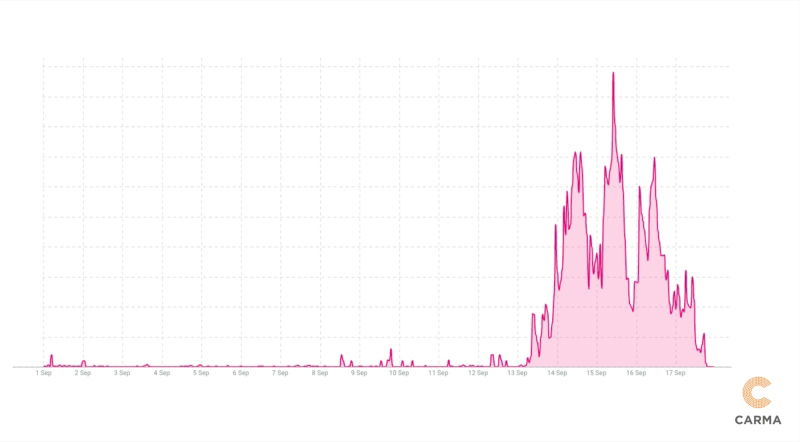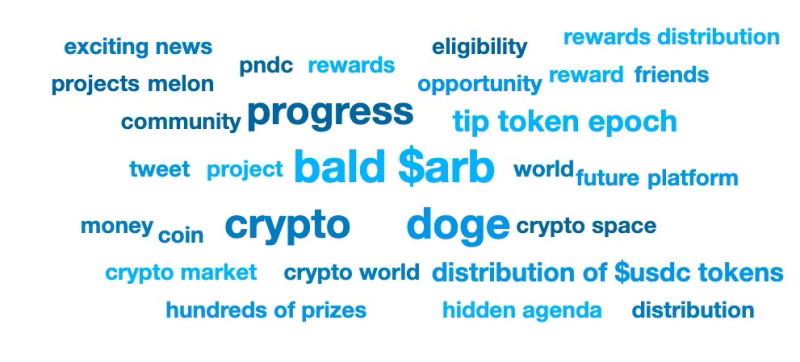



Influencers face backlash for JPEX promotion: Were they to blame?
share on
JPEX has dominated headlines recently after it has been revealed by the authorities to be unlicensed and led to the arrests of multiple Hong Kong influencers including Joseph Lam and Chan Yee over a suspected fraud related to the company.
In a conversation with MARKETING-INTERACTIVE, a spokesperson from the police said four men and four women aged 22 to 52, were arrested on Monday over allegations of conspiracy to defraud related to JPEX. As of Monday, the police have received over 1,600 reports related to the case, involving over HK$1.2bn in losses. Both Lam and Chan have been released on bail.
Previously, they both promoted JPEX's services or products on social media, during which Lam claimed that he was the platform's partner. Apart from Lam and Chan, the agent of Hong Kong actor Julian Cheung, who was featured as JPEX’s brand ambassador since last August, told local media that no agreements were made by it to run the campaign before JPEX obtained a licence.
MARKETING-INTERACTIVE has reached out to JPEX for a statement.
Don't miss: HK influencer Joseph Lam reportedly arrested amid probe into trading platform JPEX
The arrests on Monday came after a statement by the Hong Kong Securities and Futures Commission (SFC) last week, which requested KOLs and OTC Shops to stop making false or misleading statements that the company is licensed, and cease promoting JPEX and its services on social media.
After placing JPEX on the suspicious list in July last year, the watchdog has reminded investors nine times to be careful trading on the platform as the watchdog has no power to force the platform to undergo supervision, Elizabeth Wong, director of licensing and head of fintech unit in the SFC, said in a joint press briefing on Tuesday.
In response, JPEX refuted the accusations made by the watchdog that JPEX, that it had been communicating with the SFC and seeking related guidance from April 2022 to August 2023. However it had not received any positive responses or guidance. The statement said:
Without clear guidelines, valueless crypto assets are still being listed on many platforms, and all trading platforms not licensed by the SFC are flooding the Hong Kong market.
It also stated that all trading pairs on the platform have been operating without interruption, and it is progressively removing game lobby and financial project features to comply with local laws.
On Thursday morning, the platform said it has received numerous reports from Hong Kong users that they cannot access its app when using telecommunications service providers 1010 and CSL. In response to SFC's warning, the platform and its project team have decided to launch the “DAO Stakeholders Dividend Plan", distributing 49% of the DAO Stakeholder dividends, with a total value of approximately 400,000,000 USDT for subscription and conversion.
Significant drop in brand sentiments
Meanwhile, the incident has caused a significant drop in brand sentiments surrounding JPEX. According to media intelligence firm CARMA, JPEX received a positive sentiment of 37.3% and a negative sentiment of 13.4% prior to the SFC’s warning.
However, recent data from the last seven days indicate a significant shift in sentiment, with positive sentiment dropping to 8% and negative sentiment rising to 33.7%. During this period alone, there were over 20,000 mentions of JPEX across various media platforms.

Negative sentiments primarily stemmed from discussions surrounding social media influencers' reactions regarding the incident, said Charles Cheung, CARMA’s HK GM. “Additionally, several netizens expressed disappointment in celebrities, including Joseph Lam and Julian Cheung, who endorsed JPEX without conducting proper due diligence,” he added.
On the other hand, social monitoring firm Meltwater saw a total of 636 mentions surrounding JPEX over the past week. Keywords associated with the incident include “crypto”, “doge”, “hidden agenda” and “bald”.

Lack of due diligence between partnering parties
There have been instances where celebrities and influencers have faced headwinds for their promotion of cryptocurrency companies and their products and services on social media. Earlier this year, former NBA champion Paul Pierce has been fined over US$1.4 million for making “false and misleading” statements about EthereumMax (EMAX) cryptocurrency on Twitter.
Back in October last year, American KOL Kim Kardashian was also punished for touting on social media a crypto asset security offered and sold by EMAX without disclosing the payment she received for the promotion.
In fact, a crucial question continues to loom: should artiste management be more cautious in endorsing a new brand? Terry Tsang, director of Narrow Door said influencers have the responsibility to find out the credibility of their external parties before they engage in any business activities with them.
Agreeing with his view was David Ko, managing director of RFI Asia, who said influencers have a moral and legal obligation to be truthful and ethical with their audience and the brands they work with. Ko added:
They should also disclose any conflicts of interest or compensation they receive for their endorsement.
In an increasingly digital world, influencers should exercise high caution when aligning themselves with companies, as the repercussions extend beyond mere publicity and misrepresentation can have serious legal implications, said Caroline York, director of marketing, Gusto Collective. In the realm of common law, ignorance does not excuse one from legal liabilities.
Vin Ng, director of social media agency Spread-it also said thoroughly conducting due diligence on the brands they collaborate with is of utmost importance for influencers. "It is crucial for influencers to exercise discernment and avoid entering into partnerships with every brand that comes their way," he added.
However, in reality, it is challenging for celebrities and KOLs to thoroughly verify the legality of every product or service they promote, especially since the majority of these are new to the market, according to Ken Cheung, digital director, KREW Digital. He said:
To mitigate risks, KOLs may choose to collaborate exclusively with well-established brands or even listed blue-chip companies to ensure a higher level of safety and compliance.
The present saga also highlights the fact that the realm of cyberspace is vast, and regulators and law enforcement agencies of each jurisdiction face their own limitations, according to Joshua Chu, group chief risk officer at Marvion, a metaverse blockchain technology company. He added:
There ought to be more international cooperation and multinational taskforces, the likes of Interpol will be more relevant than ever; and the wider public needs better education, both to be aware of the potential of this space, its dangers and self-protection mechanisms.
Related articles:
OSL and HashKey approved to operate HK's first licensed crypto exchanges for retail investors
HK's finance chief reiterates 'appropriate regulations' needed for cryptocurrency and DeFi
Despite trust in tech, crypto and AI among sectors least trusted globally
We are bringing Digital Marketing Asia to Hong Kong from Southeast Asia! Hear all about the latest trends in the digital space with 200+ brilliant minds at Digital Marketing Asia - Hong Kong on 26 and 27 October at The Mira Hong Kong. Uncover thought-provoking and customised strategies that help brands connect with audiences effectively.
share on
Free newsletter
Get the daily lowdown on Asia's top marketing stories.
We break down the big and messy topics of the day so you're updated on the most important developments in Asia's marketing development – for free.
subscribe now open in new window
